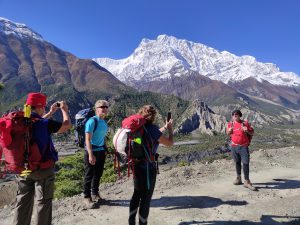
The right to recall and the right to reject are two important provisions that aim to ensure greater transparency and accountability in any country’s democratic process. But, sadly, Nepal lacks them.
These provisions provide citizens with the power to hold their elected representatives accountable and play an active role in shaping the country’s political landscape. After all, democracy is all about the power of the people. As of now, in countries like Nepal, the power of the people is often limited to the right to vote once every few years. In such a scenario, the concept of the right to recall and reject is gaining momentum as an important tool for holding elected representatives accountable.
Yet, the right to recall and the right to reject are not silver bullets that will magically transform the political scenario overnight. Instead, they are tools that citizens can use to hold their representatives accountable and bring about systemic changes in the political culture of other countries including Nepal.
The need

The right to recall and the right to reject are important in today’s election system as these tools provide greater power to citizens and promote transparency and accountability in governance.
The right to recall allows citizens to remove elected officials from office before their term expires if they are not fulfilling their duties or are involved in corruption or malpractices. This gives citizens a greater say in the political process and encourages elected officials to act in the best interests of their constituents.
The right to reject allows citizens to reject all candidates if they feel that none of them is suitable for the position. This sends a message to political parties and candidates that they need to work harder to gain the trust of the public. It also encourages political parties to field qualified and competent candidates, improving the quality of democracy in Nepal.
The implementation of these tools can help the country reduce corruption and promote fair elections. The fear of being recalled or rejected can deter corrupt politicians from running for office or encourage them to clean up their acts. This can help the country ensure that only honest and qualified individuals are elected to represent the citizens of Nepal.
Existing challenges for full implementation

But every provision and law faces challenges in the introductory phases, so the implementation of the right to recall and the right to reject in Nepal’s election system could face several challenges.
One of the major challenges is a lack of awareness among citizens about their rights and how they work, which eventually leads to the failure of effective use of these rights as tools to hold elected officials accountable.
In the meantime, there is a risk that these rights could be misused by political parties or groups to fulfil their vested interests and used as a political weapon to target elected officials from opposing parties.
Implementation of these rights is a challenge on its own. It is challenging in terms of using technologies such as the development of a proper mechanism for recall elections and rejection of candidates and ensuring that the process is fair, transparent, and efficient.
Moreover, there might be resistance from elected officials as they might feel threatened by the implementation of these tools.
The solution

To overcome the challenges that may arise with the implementation of the right to recall and the right to reject in Nepal’s election system, several solutions can be considered, such as:
- Increasing awareness: The government can initiate awareness campaigns to educate citizens about the right to recall and the right to reject. This can be done through various channels such as media, social media, and community events. This will help citizens understand the process and how they can effectively use these tools to hold their elected officials accountable.
- Ensuring transparency: It is important to ensure that the implementation process is transparent and fair. This can be done by establishing an independent body that oversees the implementation of these tools, ensuring that the process is impartial and free from any political influence.
- Strengthening implementation mechanism: A robust implementation mechanism should be developed, taking into account technical challenges and ensuring that the process is efficient and effective. The mechanism should be transparent and provide an equal opportunity for all candidates regardless of their political affiliation.
- Addressing resistance: The government can address concerns and resistance from elected officials by engaging in dialogue and explaining the benefits of the right to recall and the right to reject. Elected officials can be assured that these tools will promote transparency and accountability that helps Nepal strengthen its democracy.
The right to recall and the right to reject are important provisions that can help promote greater accountability and transparency in Nepal’s political system. By empowering citizens to hold their elected representatives accountable, these provisions can help strengthen the country’s democracy and promote greater trust between the people and their leaders.
It is essential that citizens, political parties, and civil society organisations work together to ensure that these provisions are effectively implemented and that citizens are aware of their rights and can exercise them freely.
The right to recall and the right to reject are crucial provisions that have the potential to transform the democratic framework of Nepal. However, their success depends on the active participation of citizens and the willingness of political leaders to implement them effectively. It is time for Nepali citizens to embrace these provisions and use them to bring about positive changes in the political system of Nepal.


























